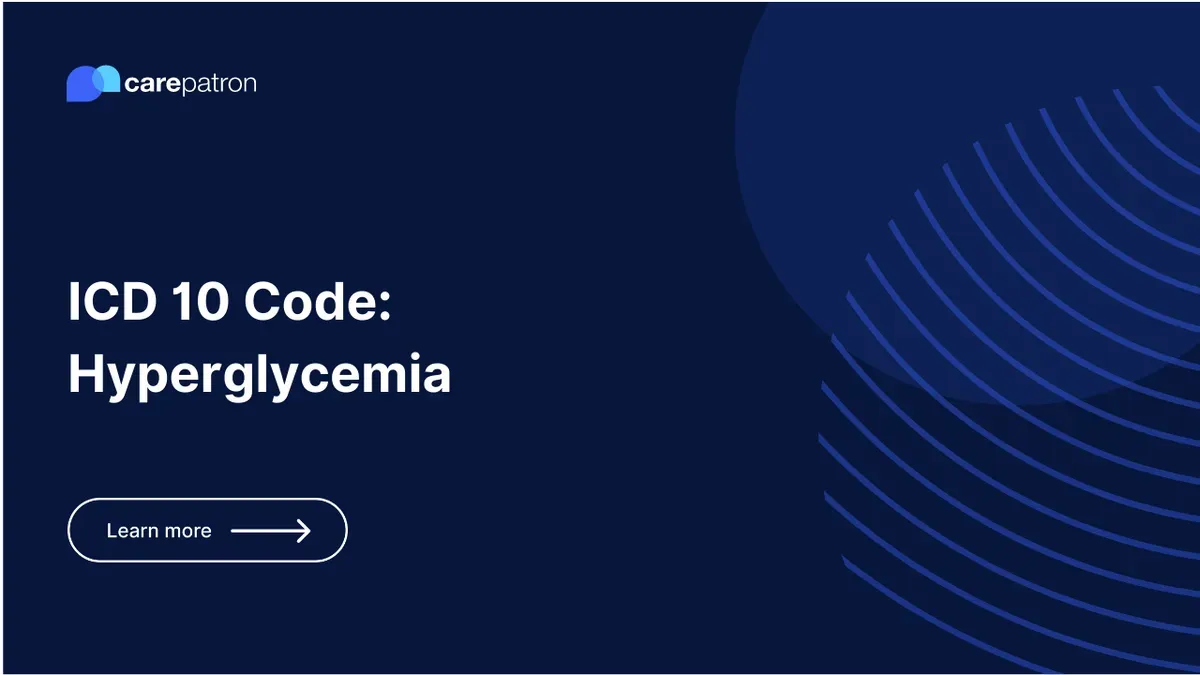
Hyperglycemia ICD-10-CM Codes
Discover the essential Hyperglycemia ICD-10-CM codes for accurate diagnosis. Learn about high blood sugar levels and their classification.
Use Code
EHR and practice management software
Get started for free
*No credit card required
Free
$0/usd
Unlimited clients
Telehealth
1GB of storage
Client portal text
Automated billing and online payments
